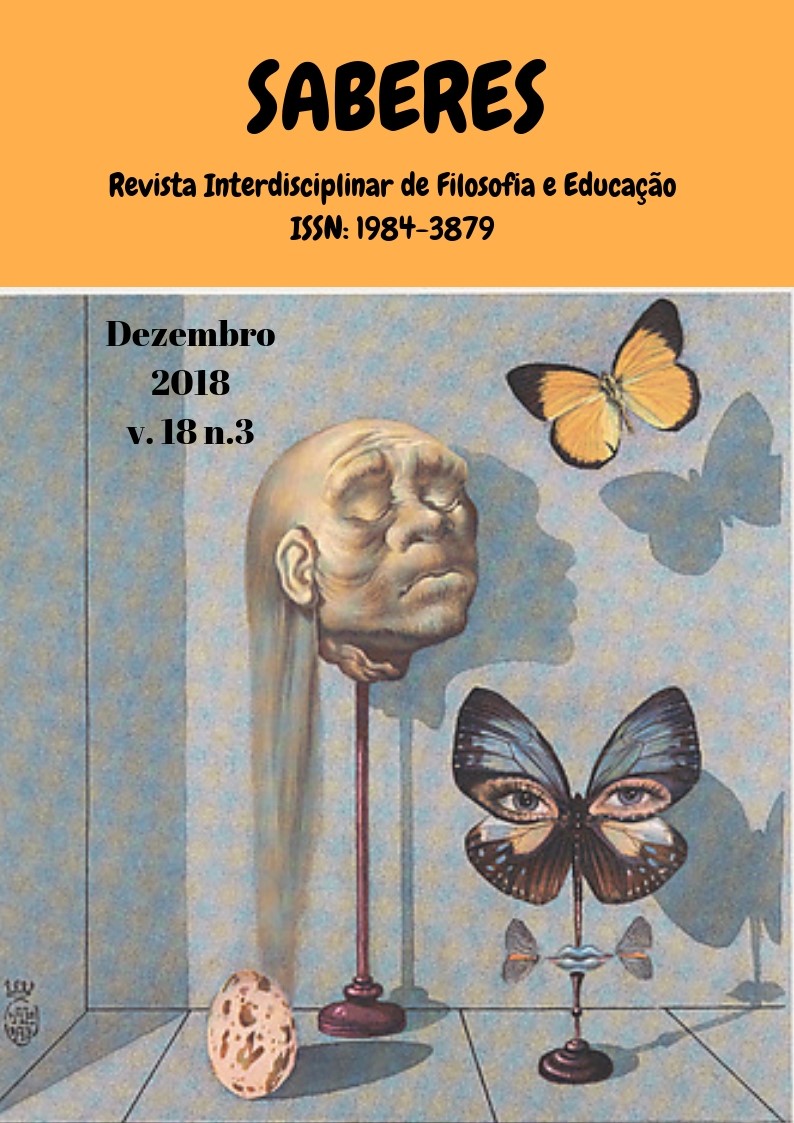A ÁRVORE DA FILOSOFIA DE JEAN-JACQUES ROUSSEAU
DOI:
https://doi.org/10.21680/1984-3879.2018v18n3ID16294Resumo
Este artigo tem o objetivo de demonstrar, através da analogia com uma árvore, como interpretamos a obra de Rousseau. Nossa interpretação está dentro do tipo que enxerga o pensamento de Rousseau como um sistema. Mostramos que Rousseau parte de um tronco exposto logo nos seus primeiros escritos, que começa pela ideia da bondade original do homem, passa pela genealogia dos vícios e chega ao contrato social que institui o Estado. Neste ponto, há uma subdivisão em dois galhos principais, os do Estado legítimo e ilegítimo, que são duas circunstâncias nas quais o homem pode se encontrar. O Estado ilegítimo se divide em diversos galhos que são estratégias de como ser virtuoso em um Estado que vicia os homens. O Estado legítimo, por sua vez, divide-se em dois galhos, que são o próprio Estado justo e os princípios através dos quais um Estado ilegítimo pode aproximar-se, por adaptações, ao justo.
Downloads
Downloads
Publicado
Como Citar
Edição
Seção
Licença
Copyright (c) 2018 Saberes: Revista interdisciplinar de Filosofia e Educação

Este trabalho está licenciado sob uma licença Creative Commons Attribution-NonCommercial-ShareAlike 4.0 International License.
Este obra está licenciado com uma Licença Creative Commons Atribuição 4.0 Internacional.
Autores que publicam nesta revista concordam com os seguintes termos:
a. Autores mantém os direitos autorais e concedem à revista o direito de primeira publicação, com o trabalho simultaneamente licenciado sob a Licença Creative Commons Attribution 4.0 que permite o compartilhamento do trabalho com reconhecimento da autoria e publicação inicial nesta revista.
b. Autores têm autorização para assumir contratos adicionais separadamente, para distribuição não-exclusiva da versão do trabalho publicada nesta revista (ex.: publicar em repositório institucional ou como capítulo de livro), com reconhecimento de autoria e publicação inicial nesta revista.
c. Autores têm permissão para publicar e distribuir seu trabalho online (ex.: em repositórios institucionais ou na sua página pessoal) após a publicação inicial nesta revista, já que isso pode gerar alterações produtivas, bem como aumentar o impacto e a citação do trabalho publicado (Veja O Efeito do Acesso Livre).
Foram feitos todos os esforços para identificar e creditar os detentores de direitos sobre as imagens publicadas. Se tem direitos sobre alguma destas imagens e não foi corretamente identificado, por favor, entre em contato com a revista Saberes e publicaremos a correção num dos próximos números.


 English
English Español (España)
Español (España) Português (Brasil)
Português (Brasil)



